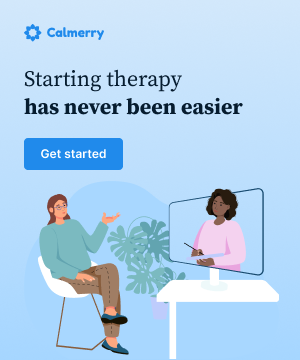











Whether it’s getting to work on time, crushing your tasks when you get there, beating the drive time traffic home, or deciding what to make for dinner, our days are filled with decisions that need to be made and tasks that need to be completed. As a result, getting through the day can often involve a small dose of intermittent stressful feelings. Most people would admit that they feel at least a small amount of stress throughout their day, and if they really thought about it, they may realize that this stress may actually help motivate them to complete tasks and get things done. Medical professionals like endocrinologists who study how hormones affect the body have found a differentiation between “good stress”, stress that helps the body to be motivated, excited, and able to perform well, and “bad stress” which breaks the body down and can cause mental and physical distress. So, what’s the difference, and what constitutes “good stress” and “bad stress”? When do you know you might need help managing your levels of stress?

Mental health and medical professionals alike have coined “good stress” with the name eustress; this term refers to the kinds of stresses that can cause excitement or motivation but are not accompanied with scared feelings or feeling like you’re in physical danger. Instead, this kind of stress causes our bodies to release hormones that increase a person’s pulse and blood pressure, which helps people become hyper focused and alert. This alertness helps us to feel motivated to complete tasks and can help us to feel the excitement of situations in a more intense way than usual. Because of this, eustress, like the feeling you get before a first date, during an intense exercise routine, or right before a test or work deadline, is considered “good stress” because it helps a person feel excited, energized, and able to complete necessary tasks.
Stress is something that has been sustained throughout evolution because it helps keep us safe and protected. Our stress hormones, when excreted, can signal to the body that they are in danger; this often enables a “fight or flight” response designed to protect a person from experiencing bodily injury or death. While this was obviously helpful during times throughout evolutionary history when humans were more vulnerable, this is still a helpful system that can be used in threatening situations to help keep us safe. Because we’re relatively less susceptible to physical threats nowadays, however, this helpful system can often misfire and send us messages that we are in danger when we really aren’t. Sometimes, when a person’s life has too much stress, their fight or flight system may be more sensitive and will signal that a person needs to protect themselves at times when it may not be necessary or reasonable. As a result, a person can feel physical and emotional distress that impacts their life and relationships. When our bodies excrete too many of our stress hormones than we can handle, this is generally considered when “bad stress” is impacting our lives; our physical and emotional health begins to decline, which can cause a person to experience a significant decrease in ability to concentrate (the opposite what happens with “good stress”), can cause a person’s immune system to decline leading to illness, and can cause a person to have mood swings, difficulty sleeping and managing appetite levels, and to feel generally more dissatisfied with their life.
Stress, while inevitable, should not be negatively impacting your life, and if it is, there are ways to help reduce the amount of stress and changing the “bad stress” into “good stress”. Mental health professionals can help you develop habits that can help you to reduce negative stress in your life and to increase the levels of positive stress that help you to stay motivated and excited. Some techniques could include mindfulness and other relaxation techniques, strategies to have a more positive mindset, and ways to improve communication skills and organization skills to improve school, work, and relationships. If you’re experiencing more “bad stress” than good, a trusted mental health professional could be a way to get some relief.
